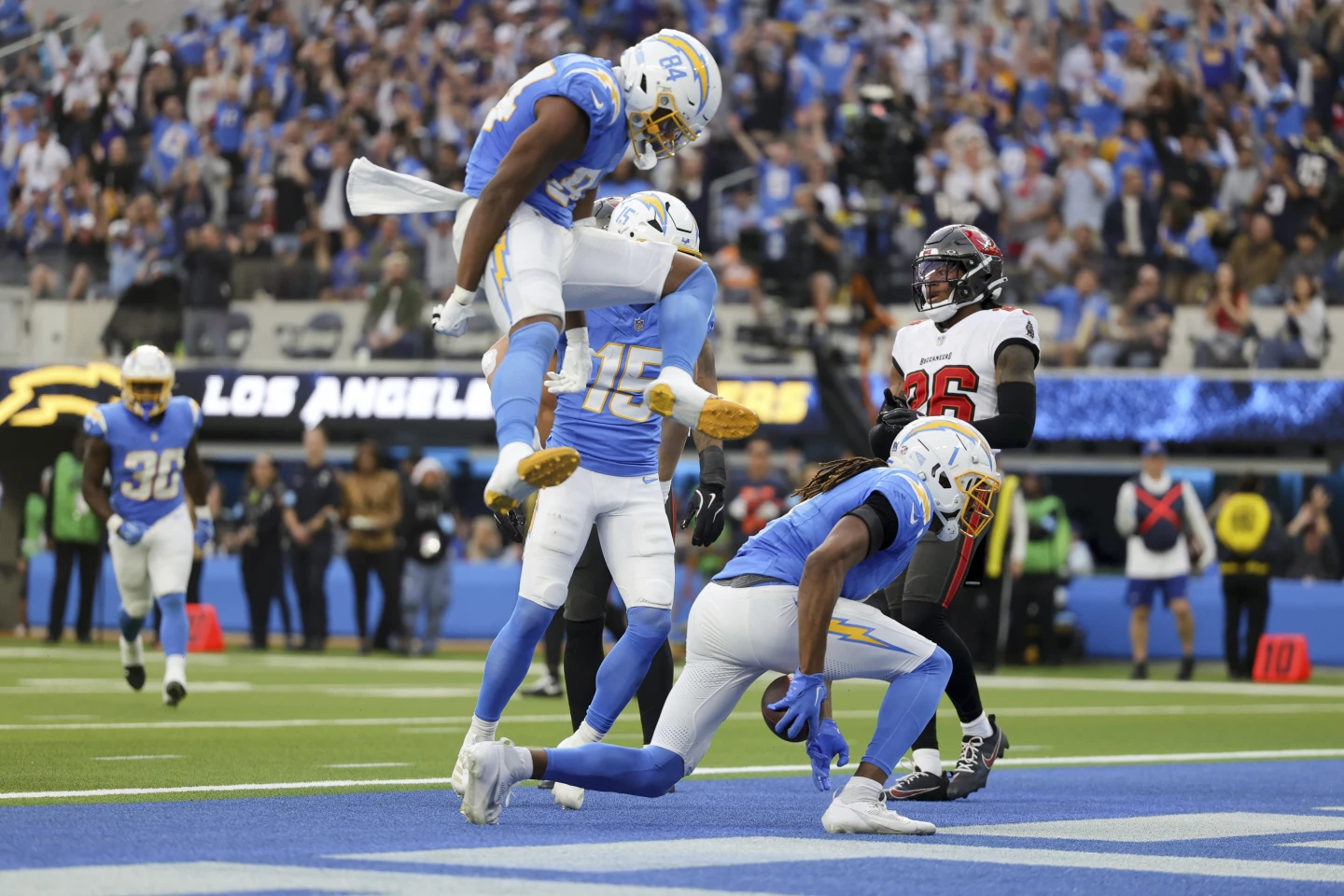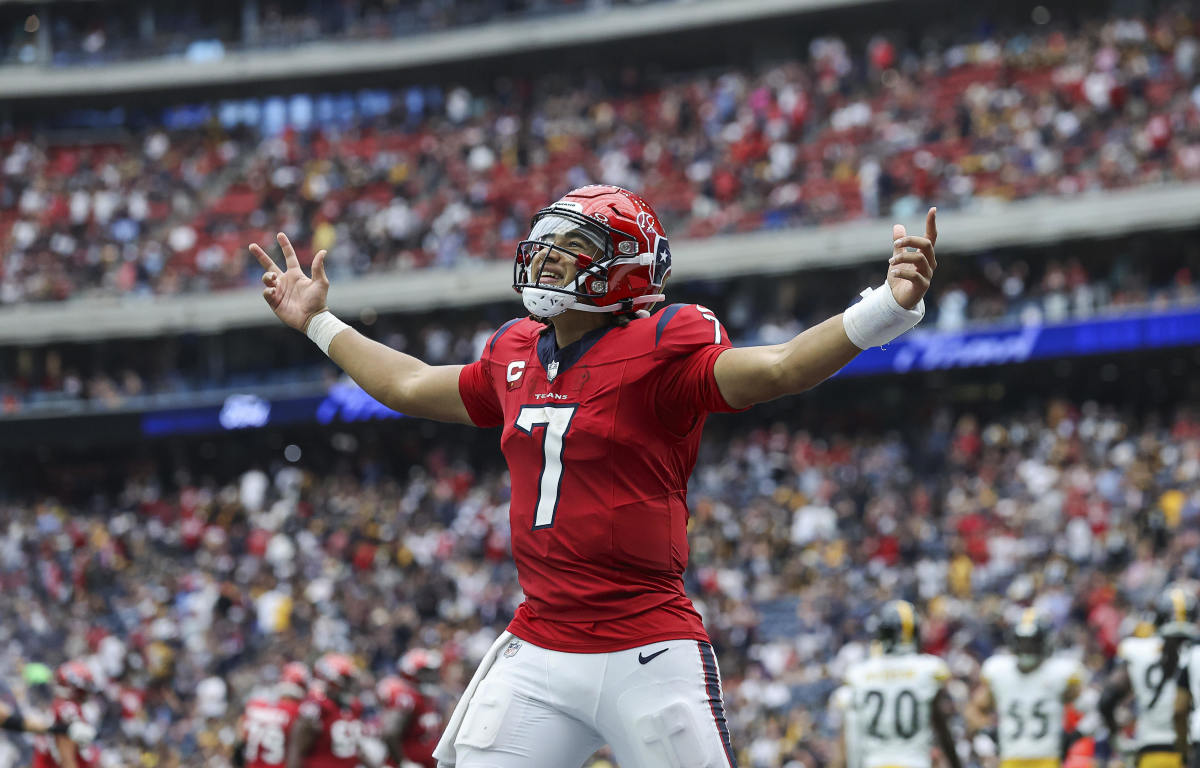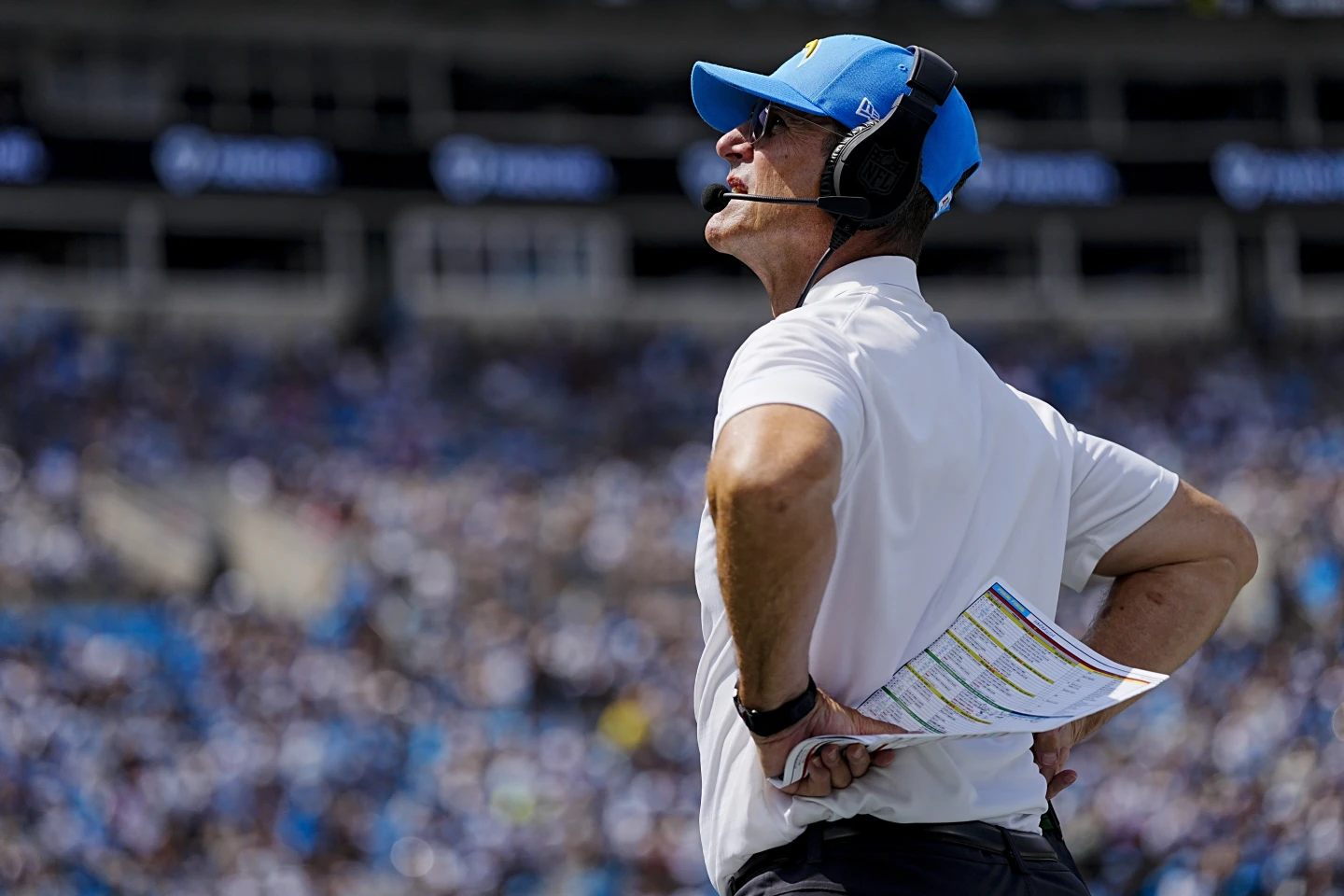For 17 regular-season games, the Los Angeles Chargers felt different. The team had a new approach, energy, and determination, and most importantly, a stronger backbone.
This season was about breaking free from the disappointment of underachieving, and the hope was to prove their progress when it counted. But on Saturday, the Houston Texans crushed the Chargers’ AFC playoff hopes with an unexpected 32-12 loss.
That loss set the team back, showing that the culture change in Los Angeles still has a long way to go before it becomes real, not just a surface change. The team needs more time, talent, and possibly new strategies.
The game on Saturday highlighted many self-inflicted issues across offense, defense, and special teams, which brought back memories of earlier coaching eras under Anthony Lynn and Brandon Staley.
The defense allowed Texans quarterback C.J. Stroud, who usually doesn’t scramble, to make big plays. One critical moment came late in the first half when the Chargers allowed a 14-play, 99-yard drive that revived the Texans’ offense.
The drive was fueled by a third-and-16 conversion where Stroud fumbled the snap, scrambled, and connected with wide receiver Xavier Hutchinson for a 34-yard completion.

The offense? It was overwhelmed by Houston’s front seven, which stopped the Chargers’ running game and pressured quarterback Justin Herbert all night.
The pressure was made worse by several dropped passes, leading to what was possibly the worst game of Herbert’s career — with four interceptions and a general lack of effectiveness from almost everyone except for Ladd McConkey, who had a great 197-yard receiving game.
One of the low points came from Quentin Johnston, who had been trying to prove himself as a reliable player after a tough rookie season filled with drops. Unfortunately, his performance on Saturday left a bad impression with several dropped passes. He also failed to convert a crucial fourth-and-2 when he ran a route that only reached 1 yard, well short of the first down.
As if the mistakes on offense weren’t enough, there was also a blocked extra point that was returned for 2 points by the Texans after a spectacular 86-yard touchdown catch by McConkey.
The special teams error included kicker Cameron Dicker, a veteran, who reacted to the blocked kick as though it was a pass, batting it down rather than recovering it. The Texans took advantage of this mistake, turning the momentum back in their favor.
If you had watched the Chargers all season, this performance was nothing like what you’d expect from a team led by Harbaugh. They couldn’t run the ball or set a physical tone, nor could they protect the football, especially on Saturday.
The defense couldn’t pressure Stroud enough or stop him from making plays when given extra time in the pocket. The Chargers looked like a team determined to earn the “Chargers are Chargering” label for yet another season.
“Not being the better team today, I’m accountable for that,” Harbaugh said after the game. “So that’s on me.”
He kept pointing the blame at himself, including for some of Herbert’s four interceptions.
“Again, on me,” Harbaugh said. “He’s got to be able to finish a throwing motion. A quarterback’s got to be able to do that. We didn’t put him in a position to do that enough.”
And Herbert? “I let the team down,” he said. “You can’t turn over the ball like that and expect to win. I put the team into a tough position there.”

In the long run, it won’t matter as much who was most to blame for the collapse, but the fact that it happened again. Too many times in recent years — especially with Herbert as quarterback — the team has had too much talent to keep failing when it counts.
Whether the disappointment falls on Harbaugh, Herbert, or the many failures from players on both offense and defense, the bigger concern is whether these repeated postseason problems signal deeper issues in the team’s culture.
Because that’s why Harbaugh was hired: to change the Chargers’ culture into one where the team can handle expectations and, as he says, attack them with “an enthusiasm unknown to mankind.”
That didn’t happen on Saturday. Despite many changes this season, the team fell back to a familiar low point. Now, Harbaugh, his coaching staff, and the front office will have to figure out what went wrong, starting with players who were supposed to step up but failed in key moments.
It’s unlikely that one bad playoff loss will undo all the progress Harbaugh and his staff made during the season. Similarly, it’s unlikely that every problem can be fixed in the coming months. The truth is, a lot of work is still needed. And if anyone within the franchise needs a reminder, Saturday’s game film will serve as a lesson.
“Favorite ball team I’ve ever been on,” Harbaugh said after the loss. “One thing I can promise you is that the sun will come up tomorrow and we’ll be attacking it with an enthusiasm unknown to mankind.”
For now, Chargers fans will have to hold on to that promise and Harbaugh’s strong optimism, even after defeat, hoping it will help create change and reshape a franchise identity that still hasn’t changed when it matters most.
